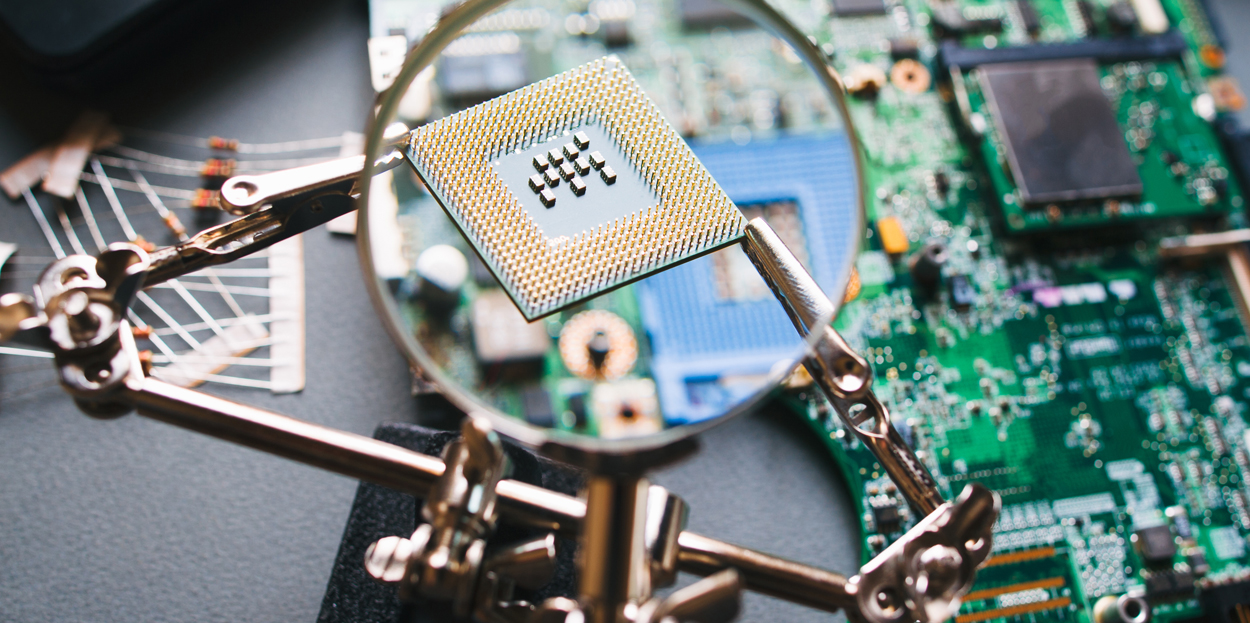Is Moore’s Law About to Become Obsolete?

Almost every Geek worth their salt is familiar with Moore’s Law, the computing “law” originally set forth in the 1960s stating that computer processing power will double every 24 months. That has held true for almost 50 years – but now, it could be on its way to becoming obsolete. Want to really nerd out on the details? Here are 3 big questions surrounding the debate.
- How much longer? Intel, the company leading the charge to keep up with Moore’s Law, predicts the traditional silicon chip only has about 5 years of relevancy left. William Holt, who leads Intel’s technology and manufacturing group, said that the company will soon have to start using new technologies, but the alternatives he cites – tunneling transistors and a technology called spintronics – would not be faster than silicon transistors, leading one to believe Moore’s Law is close to becoming obsolete.
- How small can they get? While computer processing power continues to increase, the size of transistors is shrinking. Some tech companies are currently producing transistors that are just 14 nanometers across, which is only 14 times wider than DNA molecules. Silicon has an atomic size of about 0.2 nanometers so with today’s transistors rounding out at only about 70 silicon atoms wide, they can only get so much smaller.
- Now what? If traditional transistors are close to their size limit, there has to be something else, right? While there are many different theories, Arnab Hazari, a PhD student in electrical engineering at the University of Michigan, believes the answer comes in the form of light. Read all about his work with photonic chips in an article he wrote for Quartz.
These are the kinds of questions that can really get the old grey matter churning. Whether we’re talking database architecture or considering the outer limits of what’s possible in digital information, innovation is the name of the game these days. So… what are your predictions for the future of transistors? Got an opinion on photonic chips? We’d love to hear your thoughts in the comments.